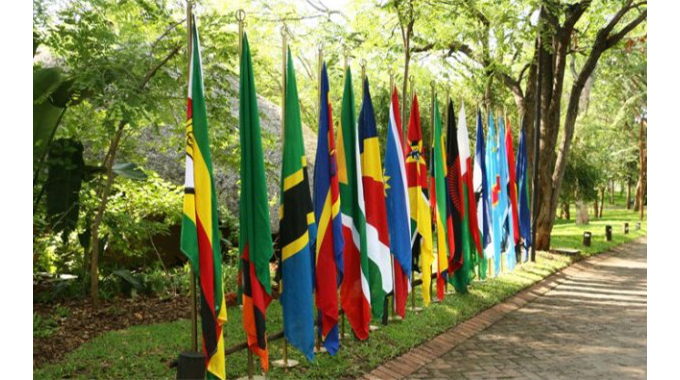
The Sunday News

Lincoln Towindo, Harare Bureau
REGIONAL countries will make an emphatic stand against the continued imposition of economic sanctions on Zimbabwe on October 25 through various activities to commemorate the regional day of solidarity against the embargo.
Regional leaders attending the Sadc Heads of State and Government meeting last year declared October 25 as a day of solidarity with Zimbabwe against economic sanctions imposed by the United States and the European Union bloc.
All the member states have undertaken to convene a series of annual events on the day in their respective countries until the embargo is lifted.
Diplomatic channels will also be used to lobby for the unconditional removal of the sanctions. Government is presently finalising preparations for the region-wide commemorations through the Sadc secretariat and bilateral communication channels.
An inter-ministerial committee has been set up to direct local preparations for the day. Foreign Affairs and International Trade Minister Dr Sibusiso Moyo will this week also appear before the Parliamentary Portfolio Committee on Foreign Affairs and International Trade to outline Government’s re-engagement programme, including efforts to facilitate the removal of sanctions. Permanent Secretary Ambassador James Manzou told our Harare Bureau that most of the key programmes will be discussed this week.
“The day is Sadc’s day of commemorations and not just Zimbabwe’s day. It is Sadc that took the decision that for as long as the sanctions are in place, every October 25 the Sadc region will undertake activities to highlight the need for those sanctions to be removed”.
In terms of activities, it’s still a bit early to talk about them specifically because we are still liaising with the Sadc secretariat, and also the inter-ministerial committee on the Zimbabwean side is meeting next week (this week) to look at some ideas on the day.
“On Thursday, my Minister (Dr Moyo) is addressing the portfolio committee on the issue of sanctions and will update on what is being planned for the day. So, by Thursday next week (this week), we will have a clearer picture of what will be taking place on the day. We saw at the United Nations General Assembly, leaders of Namibia, South Africa, Tanzania, Rwanda all coming up and calling for the lifting of sanctions; that is what the leaders agreed on in Tanzania.”
Last year, the event held at the National Sports Stadium — headlined by President Emmerson Mnangagwa — was part of broader efforts that were also conducted in unison with regional countries. Chairperson of the Parliamentary Portfolio Committee on Foreign Affairs and International Trade, Cde Kindness Paradza, told our Harare Bureau that the August House is complementing Government’s re-engagement efforts through engaging their counterparts in Washington.
“This has now become a tradition to observe October 25 as a day of condemning sanctions. Until they are removed, we will continue to observe this day. We are busy from the Parliamentary point of view doing parliamentary democracy. We are complementing Government’s efforts in re-engaging with our counterparts at Capitol Hill in Washington.”
A study commissioned by the Ministry of Foreign Affairs and International Trade on the impact of sanctions shows how sanctions have affected every facet of economic life in Zimbabwe. According to the research, Zimbabwe has lost over US$42 billion in revenue over the past 18 years, while donor support estimated at US$4,5 billion has been lost annually since 2001. Further, US$12 billion worth of loans from the International Monetary Fund, the World Bank and African Development Bank, and commercial loans worth US$18 billion, have been lost, while the GDP or economic output, has shrunk by US$21 billion.
According to the paper, over 400 000 Zimbabwe lost their jobs in the private sector between 2005 and 2013, while the number of people living under the Poverty Datum Line grew from 54 percent of the total population to nearly 90 percent. In addition, the number of people living in extreme poverty grew from 10 percent of the population to over 30 percent of the population since the sanctions were imposed.



